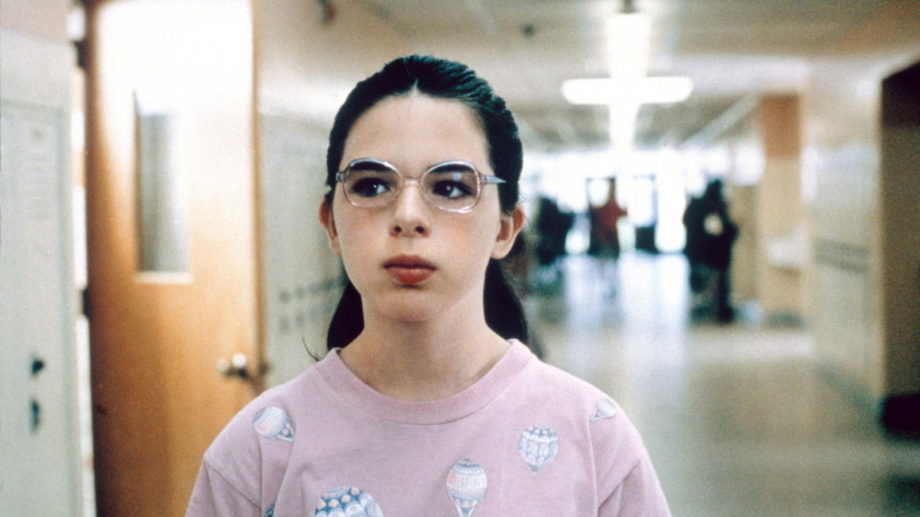A bevy of special programs have been added to the lineup for the 25th New York Jewish Film Festival (January 13-26), which is presented by the Film Society of Lincoln Center and the Jewish Museum.
In honor of the festival’s 25th anniversary, this year features a retrospective of highlights from past editions with films by Chantal Akerman, Michael Haneke, Andrzej Wajda, and more. Other special programs include an exhibition of posters from previous festival selections; a panel discussion bringing together some of New York’s finest film curators and programmers; a 20th-anniversary screening of Todd Solondz’s Welcome to the Dollhouse accompanied by the classic documentary Night and Fog, selected by Solondz; a Master Class on filmmaking by director Alan Berliner; continuous screenings of pivotal moments from 10 films seen in previous editions of the New York Jewish Film Festival; an evening of five shorts featuring such talents as Robert De Niro and Richard Kind; and an online anniversary publication looking back over the first 25 years of the festival.
The New York Jewish Film Festival is one of the oldest and most influential Jewish film festivals worldwide, unique in New York City, and one of the longest-running partnerships between two major New York cultural institutions. Since its founding in 1992, the NYJFF has presented more than 675 films from 43 countries, of which 320 were world, U.S., or New York premieres, and many have gone on to win awards and gain wider distribution.
Tickets to the 25th New York Jewish Film Festival will go on sale Tuesday, December 22. A pre-sale to Film Society and Jewish Museum members will begin Thursday, December 17 at noon.
NYJFF at 25: A Retrospective
This series of 10 films from previous editions of the New York Jewish Film Festival marks the silver anniversary of the festival, ranging from the silent film Benya Krik to works from such acclaimed directors as Amos Gitai and the late Chantal Akerman.
Benya Krik
Vladimir Vilner, USSR, 1926, 35mm, 90m
Silent with English intertitles and live musical accompaniment by Peter Freisinger
Vladimir Vilner’s classic film is set in the Jewish area of Moldavanka in Odessa, where the local gangster king Benya Krik rules with an iron fist. Based on the real-life gangster Mishka “Mike the Jap” Vinnitsky, Krik revels in murder and leverages his power into tremendous profit. When the Russian Revolution begins, the local commissioner attempts to put Krik’s gang to work as a revolutionary regiment, complete with tattooed red stars. Ultimately, Krik finds himself ensnared in a Bolshevik trap—and mystery and intrigue ensue. Restoration and English intertitles by the National Center for Jewish Film. This special event is presented in conjunction with the exhibition The Power of Pictures: Early Soviet Photography, Early Soviet Film, on view through February 7 at the Jewish Museum.
Saturday, January 23, 7:00pm
The Castle
Michael Haneke, Austria/Germany, 1997, DCP, 123m
German with English subtitles
The Castle is the unfinished, final novel by Franz Kafka, arguably the 20th century’s most influential Jewish writer. With extraordinary fidelity to Kafka’s original language and tone, Austrian director Michael Haneke has adapted the work for the big screen, complete with a star-studded cast made up of Haneke regulars. A land surveyor known only as K is summoned to a remote mountain village by the local government. Upon arrival, he is denied entrance and faces an increasingly obstructive provincial bureaucracy. Haneke masterfully evokes Kafka’s vision of a dystopian society hobbled by paperwork and bled dry by conformism and convolution.
Monday, January 18, 9:00pm
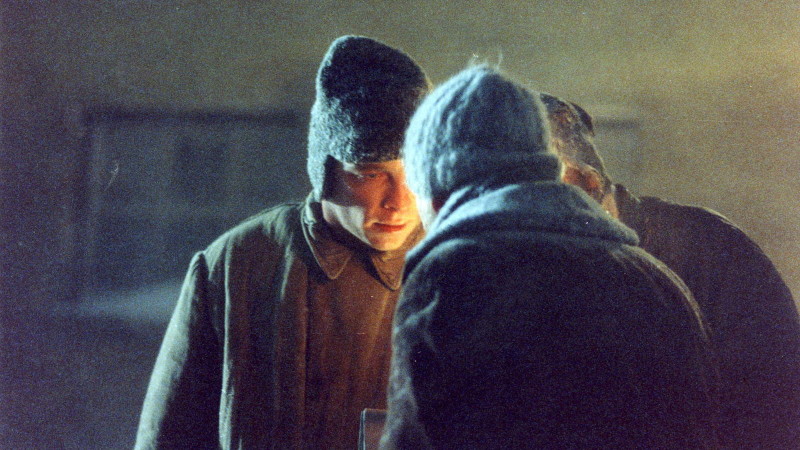
The Castle
Holy Week
Andrzej Wajda, Poland/Germany/France, 1995, 35mm, 97m
Polish with English subtitles
As the Warsaw Ghetto burns, a Jewish woman seeks sanctuary with a former boyfriend on the Christian side of the city. Andrzej Wajda’s adaptation of Jerzy Andrzejewski’s short story Holy Week is an inquiry into the relationship between Polish Christians and Polish Jews during World War II. If Jan hides Irena in his home, he will be committing a crime for which the sentence in Nazi-occupied Poland is death for the perpetrator and his family. His humanitarian nature still shines through, and the two forge a tense but caring new chapter in their deeply rooted relationship.
Sunday, January 17, 9:30pm
Left Luggage
Jeroen Krabbé, USA/Netherlands/Belgium, 1998, 35mm, 100m
English, Hebrew, and Yiddish with English subtitles
Set in 1970s Belgium, Left Luggage tells the story of Chaya (Laura Fraser), the 20-year-old daughter of Holocaust survivors who studies philosophy and lives a bohemian existence in Antwerp. When Chaya takes a job as a nanny for a Hasidic family, her developing friendship with the devout mother forces her to reevaluate the Jewish faith. This clear-eyed look at Hasidism and its relationship with Judaism as a whole also stars Isabella Rossellini, actor-director Jeroen Krabbé, and Topol, and was the winner of three awards at the Berlin International Film Festival.
Tuesday, January 26, 1:00pm & 6:15pm
Lost Embrace
Daniel Burman, Argentina/France/Italy, 2004, 35mm, 99m
Spanish, Korean, Yiddish, and Russian with English subtitles
Argentinean director Daniel Burman’s coming-of-age ensemble film is a warm and amusing story of self-actualization and familial ties. Ariel Makaroff, a Jewish twentysomething in Buenos Aires, has left his architectural studies, unmotivated to do anything but wander through a rundown shopping mall. Ever since his father went missing, his mother and brother have worked in a lingerie shop. In hopes of a fresh start, Ariel decides he wants to move to Poland, and asks his grandmother, ex-girlfriend, and rabbi for help. Winner of two Silver Bear awards at the 2004 Berlin Film Festival.
Sunday, January 17, 6:45pm
Mahler on the Couch
Percy Adlon & Felix O. Adlon, Austria/Germany, 2010, DCP, 98m
German with English subtitles
Percy Adlon, the acclaimed director of Bagdad Cafe, teamed up with his son Felix for this portrait of the great composer Gustav Mahler and his tempestuous relationship with his wife, Alma. Chafing under an agreement to give up her own musical ambitions, Alma begins an affair with the young architect Walter Gropius, as Mahler consults with Sigmund Freud on matters of creativity and passion. Moving, funny, and filled with Mahler’s sublime music (conducted by Esa-Pekka Salonen), Mahler on the Couch is a sensory feast based on actual encounters between Mahler and Freud.
Monday, January 18, 1:30pm
News from House / News from Home
Amos Gitai, Israel/France/Belgium, 2006, DCP, 97m
English, Arabic, Hebrew, and French with English subtitles
A house in West Jerusalem was for decades a microcosm of a city in conflict: abandoned by its Palestinian owner in the 1948 war; then requisitioned by the Israeli government as vacant; rented to Jewish Algerian immigrants in 1956; and, finally, purchased by a university professor who undertook its transformation into a three-story house in 1980. While its inhabitants have now dispersed and the common space has disintegrated, the structure remains both an emotional and a physical center at the heart of the Israeli-Palestinian situation. Here, renowned filmmaker Amos Gitai uncovers the multilayered human history of this remarkable place.
Sunday, January 17, 4:15pm
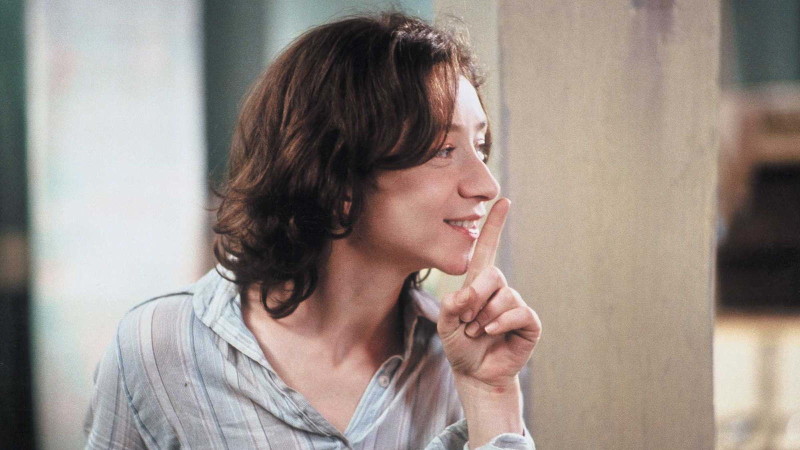
Tomorrow We Move
Nobody’s Business
Alan Berliner, USA, 1996, Digital projection, 60m
Acclaimed New York filmmaker Alan Berliner took on his reclusive father as the reluctant subject of this poignant documentary, and what emerged was this cinematic biography that finds both humor and pathos in the swirl of conflicts and affections that bind father and son. Berliner weaves together archival footage and interviews with relatives in his quest to understand this complex and troubled character. Ultimately, Nobody’s Business serves as a meeting of the minds, where generations collide and the boundaries of family relationships are pushed to the brink.
Screening with:
Intimate Stranger
Alan Berliner, USA, 1991, Digital projection, 60m
Alan Berliner’s maternal grandfather is the subject of his remarkable documentary from 1991. Joseph Cassuto was a Palestinian Jew, born in 1905 and raised in Egypt. After World War II, his fascination with Japanese culture blossomed into a lifelong love affair with the country, and he abandoned his family to live there and pursue miscellaneous business interests. Equal parts romantic adventurer and coldhearted shirker of familial responsibility, Cassuto is a riveting protagonist in this poetic and emotional jigsaw puzzle of family history.
Sunday, January 24, 3:00pm
Tomorrow We Move
Chantal Akerman, France/Belgium, 2004, 35mm, 110m
French with English subtitles
The late Belgian filmmaker Chantal Akerman brings us an intellectual comedy about a mother and daughter who find themselves living together for the first time in decades. Charlotte, a freelance writer, invites her recently widowed mother, Catherine, to live in her apartment, and the ensuing clutter becomes a source of irritation and strife. When Catherine decides to revitalize her career as a piano teacher, the claustrophobia reaches new and absurd levels. Charlotte continues to pursue her desperate quest for peace as Tomorrow We Move develops into a slyly Jewish tale of rootlessness and familial burdens.
Wednesday, January 20, 8:30pm
NYJFF Shorts Program (TRT: 75m):
Five concise stories come together in this program of short films. Dear God (Guy Nattiv & Erez Tadmor, Israel, 2014, 13m), whose co-director Nattiv also directed the 2012 NYJFF opening-night film Mabul, depicts a romantic Jerusalem through the eyes of Aaron, a simple man who guards the historic Western Wall. In Gloomy Sabbath (Amit Epstein, Germany, 2013, 15m), an ailing woman leads her grandson on a lively and colorful dance into the past to reveal a dark family secret. The Notebook (Zach Clark, USA, 2014, 15m) takes place in a video store, where a woman makes a sad, strange request. In What Cheer? (Michael Slavens, USA, 2014, 18m), starring Richard Kind, a man grappling with the sudden passing of his wife encounters a 20-piece punk marching band. Ellis (JR, USA, 2015, 14m) stars Robert De Niro as an immigrant whose pursuit of a new life expired at Ellis Island. Dear God, Gloomy Sabbath, and The Notebook are receiving their New York premieres.
Sunday, January 24, 8:30pm
Guest Selects: Todd Solondz:
20th Anniversary Screening
Welcome to the Dollhouse
Todd Solondz, USA, 1995, 35mm, 88m
Eleven-year-old Dawn “Weinerdog” Wiener is a junior-high geek who just wants to be popular. Teased by her classmates and tormented by the school bully, she develops an improbable plan to seduce the star of a high-school garage band. Todd Solondz’s celebrated black comedy follows Dawn through the many dark corners of suburban youth. Bitterly funny and true to life, the film launched Solondz’s career, won the Grand Jury Prize at the Sundance Film Festival, and is now hailed as a classic of modern independent cinema.
Followed by:
Night and Fog
Alain Resnais, France, 1955, 35mm, 32m
French with English subtitles
Ten years after the liberation of the Nazi concentration camps, French filmmaker Alain Resnais documented the abandoned grounds of Auschwitz in his harrowing documentary. One of the first cinematic reflections on the horrors of the Holocaust, Night and Fog contrasts the stillness of the abandoned camps’ quiet, empty buildings with wartime footage. Using a combination of archival materials from past and present, in color and black and white, Resnais investigates the cyclical nature of humanity’s violence and presents the unsettling suggestion that such atrocities could happen again.
On selecting Night and Fog, Todd Solondz writes: “I saw Night and Fog in college and it stuck with me as a touchstone for speaking of the unspeakable, evoking the unevocable, memorializing without pomp. I can’t say it ‘inspired’ me, but it’s always stood as a kind of monument: What is worth our time and attention? What matters? Who are we?”
Thursday, January 14, 8:45pm
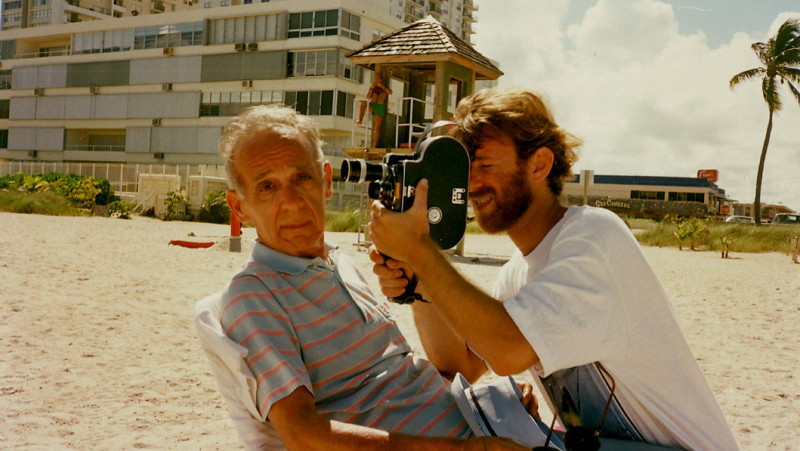
Nobody’s Business
Talking Movies:
Panel Discussion: Curating Film (90m)
A collection of New York’s finest film curators and programmers come together to jump-start a discussion about engaging film audiences in the 21st century. With festivals, museums, galleries, and online platforms all presenting film in new and different ways, the medium finds itself at an exciting crossroads.
Panelists: Thomas Beard is the Founder and Director of Light Industry, a venue for film and electronic arts in Brooklyn, and Programmer at Large at the Film Society of Lincoln Center. He has organized screenings for Artists Space, the Centre Pompidou, the Museum of Modern Art, and Tate Modern, and he co-curated the cinema for Greater New York 2010 at MoMA PS1 and the film program for the 2012 Whitney Biennial. Stuart Comer is Chief Curator of Media and Performance Art at the Museum of Modern Art. He was a co-curator of the 2014 Whitney Biennial and was previously the founding curator of film at Tate Modern, London. Chrissie Iles is the Anne and Joel Ehrenkranz Curator at the Whitney Museum of American Art where one of her specializations is film and video.
Moderator: Jens Hoffmann is Deputy Director, Exhibitions and Public Programs, the Jewish Museum and Curator for Special Programs, New York Jewish Film Festival. He has curated more than 50 exhibitions internationally since the late 1990s, including the 2nd San Juan Triennial (2009), the 12th Istanbul Biennial (2011), and the 9th Shanghai Biennale (2012-13).
Sunday, January 17, 3:30pm
Venue: Elinor Bunin Munroe Film Center Amphitheater
Master Class with Alan Berliner (90m):
Alan Berliner’s ability to combine experimental cinema and artistic purpose has made him one of the most acclaimed independent filmmakers in the United States. In this unique master class, Berliner will discuss his use of sound and image metaphors in Intimate Stranger (1991) and Nobody’s Business (1996), both of which are screening in the festival. The lecture will include a presentation of clips from each film.
Sunday, January 24, 6:00pm
Venue: Elinor Bunin Munroe Film Center Amphitheater
Happy Ends (TRT: 20m; running on loop):
Spoiler alert! Pivotal moments from 10 films presented at previous editions of the New York Jewish Film Festival highlight a wide array of themes and life lessons with fluctuating degrees of fate, heroism, and self-determination. This 20-minute compilation will run on a continuous loop in the amphitheater of the Elinor Bunin Munroe Film Center during the festival. Films include The Jewish Cardinal (2013), Daas (2011), The Strange Case of Wilhelm Reich (2012), Protektor (2009), Emotional Arithmetic (2007), Mahler on the Couch (2010), A Bottle in the Gaza Sea (2011), Nina’s Tragedies (2003), Gloomy Sunday (1999), and Live and Become (2005).
Venue: Elinor Bunin Munroe Film Center Amphitheater
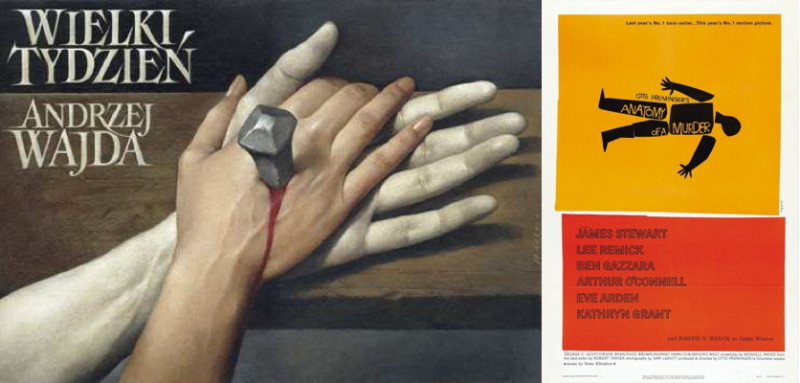
Celluloid on Paper: Poster Exhibition
Posters that highlight works from the festival’s quarter-century history will be on view in the Furman Gallery at the Walter Reade Theater, ranging in style from the Soviet constructivist–inspired design for Sonia, to a more minimalist film still of a woman contemplating the nature of evil, or a man gazing into the horizon, perhaps looking ahead to the next 25 years of the festival. Highlights include posters for Anatomy of a Murder (1959), Ida (2013), Lost Embrace (2004), Sonia (2007), and The Castle (1997), among others.
Anniversary Publication:
Visit NYJFF.org for essays on the festival’s history and founding, on what makes a film “Jewish,” and a broader overview of the history of film festivals and their significance today, by authors Jens Hoffmann, Richard Peña, Jeffrey Shandler, and Aviva Weintraub.
This year’s New York Jewish Film Festival was selected by Florence Almozini, Associate Director of Programming, Film Society of Lincoln Center; Rachel Chanoff, THE OFFICE performing arts + film; Jaron Gandelman, Curatorial Assistant for Media, Jewish Museum and Coordinator, New York Jewish Film Festival; Jens Hoffmann, Deputy Director, Exhibitions and Public Programs, Jewish Museum and Curator for Special Programs, New York Jewish Film Festival; Dennis Lim, Director of Programming, Film Society of Lincoln Center; and Aviva Weintraub, Associate Curator, Jewish Museum and Director, New York Jewish Film Festival.
The New York Jewish Film Festival is made possible by the Martin and Doris Payson Fund for Film and Media. Generous support is provided by Mimi and Barry Alperin, The Liman Foundation, Sara and Axel Schupf, Monica and Andrew Weinberg, a gift in memory of Max Weintraub, and through public funds from the New York State Council on the Arts and the New York City Department of Cultural Affairs. Additional funding is provided by the Office of Cultural Affairs, Consulate General of Israel in New York.


